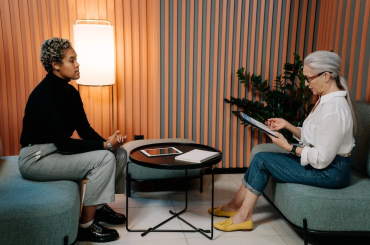Table of Contents
Buying your first home can seem like a daunting task. With so many steps involved, it’s easy to feel overwhelmed and unsure where to start. But don’t worry! The process doesn’t have to be painful.
Buying your first home can be an exciting and rewarding experience if you know what to expect. With some preparation and guidance, you can make your dream of homeownership a reality.
Let’s go through the steps in buying a home for the first time in Surrey real estate. Then, we’ll teach you how to navigate the process, from getting pre-approved for a mortgage to closing on your new property. So, if you’re ready to take the first step, let’s get started!
Determining a Budget and Sticking to It
Before you start your home search, you should know how much you can afford to spend. This will help you narrow your search. It also helps you avoid pursuing a home outside your price range.
To determine your budget, take a hard look at your finances. Consider your monthly income, expenses, and debts. Then, use a mortgage calculator to estimate your monthly payments. This includes interest, taxes, and insurance.
Once you have a budget in mind, stick to it. It can be tempting to stretch your budget to get the home of your dreams. But this can lead to financial stress and even foreclosure down the line.
Remember that owning a home comes with additional expenses, such as maintenance and repairs. So, make sure you have some wiggle room in your budget for unexpected costs.
Securing a Mortgage Loan
It’s also crucial to understand the different loan types available. You should also know what you need to do to qualify for them.
Gather all the necessary documents to prove your income and financial stability. This includes credit reports, pay stubs, tax returns, and bank statements. These will help determine how much you can borrow and at what interest rate.
You’ll want to shop around and compare different mortgage lenders. The same goes for mortgage options. Consider factors such as interest rates, closing costs, and mortgage payment terms.
It’s also a good idea to get a mortgage pre-approval. This will give you a better idea of what you can afford. It will also make you a more attractive buyer to sellers.
Be prepared to answer questions from lenders. They will ask about your credit history and any outstanding debts. Your credit score will play a big role in determining your eligibility for a loan. The same goes for the interest rate you’ll receive.
Ensure you understand the terms of your loan agreement. Also, clarify any potential fees or penalties. Don’t be afraid to ask questions and negotiate terms with your lender. This will ensure you’re getting the best deal possible.
Working with a Reputable Real Estate Agent
Working with a reputable real estate agent can make all the difference for first-time home buyers. They can help you navigate the complex process. They can also provide valuable insights and advice that can save you time and money in the long run.
It’s important to choose a real estate agent you feel comfortable working with. They should also have your best interests in mind. A trustworthy agent will listen to your needs and preferences. They will also provide honest feedback and advice throughout the home-buying process.
They can also explain the market conditions to help you understand the process better. As such, you can make better and more informed decisions. This ensures you know what you’re investing in and that it’s worth it.
And most importantly, real estate agents will work tirelessly to help you find your dream house. They will connect you to the right people. These include mortgage brokers, real estate attorneys, insurance agents, and more. These real estate professionals will make the buying process as seamless as possible.
Understanding the Home Buying Process
Once you secure financing and find a reputable agent, you can start your home search.
Your agent will help you navigate the real estate market. They will also help you find homes that meet your needs. First, they will help you determine your must-haves in a home. Then, they will use their extensive resources to show you a list of homes that satisfy your criteria.
Once you’ve found a home you love, make an offer and have it accepted by the seller. This is where your real estate agent can be especially helpful. They can guide you through the negotiation process.
After your offer is accepted, you’ll need to have the home inspected to ensure there are no major issues. If any problems are found, you may need to negotiate repairs. Sometimes, you can ask for a lower purchase price from the seller.
Finally, you’ll need to close the sale. This is done by signing all the necessary paperwork and transferring funds. This can be a complicated process. But your agent and a lawyer can help ensure everything goes smoothly.
Negotiating the Selling Price and Closing Costs
Before you make an offer, research the market value of the home and the surrounding area. This will give you an idea of what other homes in the area are selling for and how much room you have to negotiate.
Then, make a reasonable offer. Remember that a lowball offer may offend the seller. It can also hurt your chances of getting the home.
Next, ask for seller concessions. Closing costs can add up quickly. So, it’s essential to ask the seller for benefits. This could include paying for home insurance, property taxes, and other closing costs. It could also include providing a home warranty or making repairs before the sale.
Also, negotiations are a give-and-take process. So, you should be willing to compromise on some things to get what you want. For example, if the seller won’t budge on the price, ask for more concessions or repairs.
Once you’ve agreed on a purchase price and any concessions, ensure everything is in writing. This will help avoid any misunderstandings or disagreements later on.
Closing the Deal and Moving In
After months of searching for the perfect home, you’ve finally found it. Now, it’s time to close the deal and move in.
Closing the deal involves a lot of paperwork. So, it’s essential to have all your documents in order. This includes your pre-approval letter, learn types of formal letters proof of insurance, and a copy of the purchase agreement. You’ll also need to bring a certified check or wire transfer for the down payment and closing costs.
During the closing process, you’ll review and sign all the necessary documents. This includes the mortgage agreement and the deed. You’ll also pay any remaining closing costs, such as attorney fees and title insurance.
Once the deal is closed, it’s time to move in! Hire a reputable moving company or enlist the help of family and friends to make the process go smoothly. Don’t forget to change your address with the post office and update your utilities and services.
It’s also a good idea to do a final walk-through of the property. This ensures everything is in order and any agreed-upon changes have been made.
All that’s left is to celebrate your new home. Congratulations on being a first-time homeowner!
Buying Your First Home

Buying your first home doesn’t have to be a painful process. With the right mindset, preparation, and guidance, you can make the experience smooth and enjoyable.
Remember to take your time, do your research, and trust your instincts. After all, this is an investment in your future and your happiness. Cheers to finding your dream home!





